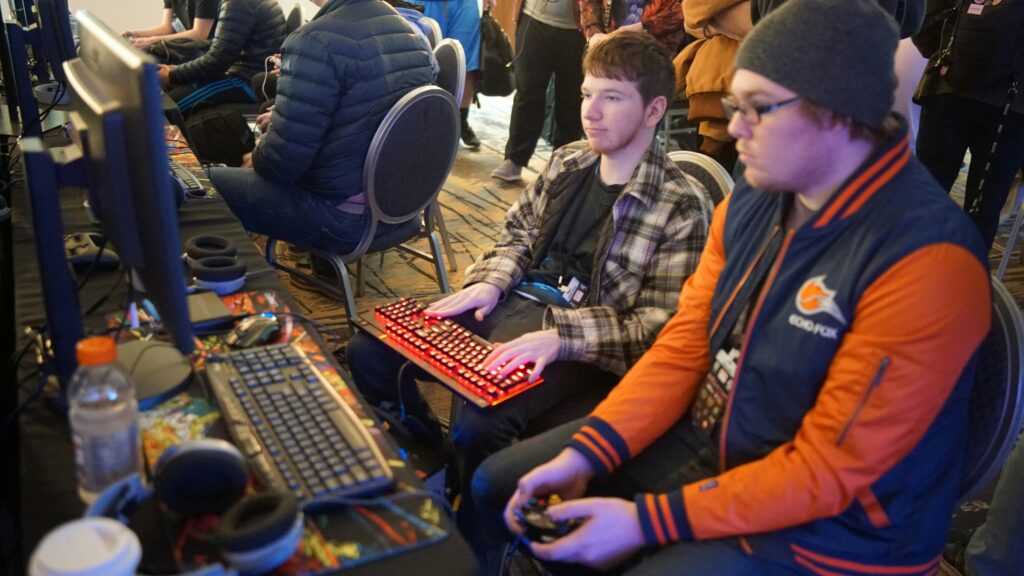In the world of online gaming, the allure of gaining an unfair advantage through cheat software can be tempting for some players. However, what many gamers may not realize is that these cheats often come bundled with a more sinister companion malware.
As an avid gamer myself, I’ve delved into the dark side of cheat software and the risks it poses to unsuspecting players. Hackers exploit the trust and enthusiasm of gamers by embedding malicious code within cheat programs, compromising not only the integrity of the game but also the security of players’ devices.
Understanding how these cyber threats operate is crucial in safeguarding both your gaming experience and personal information. Join me as we uncover the intricate web of cheat software and malware, shedding light on the tactics used by hackers to exploit players in the virtual battlegrounds.
The Rise of Cheat Software in Gaming
Entering the gaming arena, cheat software has witnessed a steep rise, creating a host of challenges for players. As a passionate gamer, I’ve observed firsthand how these tools have become more prevalent in the online gaming landscape.
Cheating programs, once confined to a few tech-savvy individuals, have now proliferated, attracting a broader audience seeking shortcuts to success within games.
Types of Cheat Software
When it comes to cheat software in online gaming, there are several types that hackers use to exploit players. Let’s delve into some common forms of cheat software used for unethical advantages in gaming.
Aimbot
Aimbots are cheat programs designed to enhance a player’s aim and shooting accuracy in games. These tools automatically aim at opponents, giving users an unfair advantage by ensuring precise targeting without requiring much skill or effort on their part.
Wallhack
Wallhacks are cheat codes that allow players to see through walls and other obstacles in the game. By making walls transparent, wallhacks give users the ability to spot enemies or valuable items that would typically be hidden from plain view, enabling them to plan their movements strategically and gain an unfair edge over legitimate players.
Speed Hacks
Speed hacks are cheat programs that manipulate the player’s movement speed in the game, allowing them to move faster than intended by the game developers. This gives users the ability to outmaneuver opponents, complete objectives quicker, or escape dangerous situations with unprecedented agility, providing an unfair advantage that disrupts the balance of the game.
The Threat of Malware in Gaming
Discussing the threat of malware in gaming is crucial as it is often intertwined with cheat software, posing significant risks to players. Hackers exploit the trust and enthusiasm of gamers by embedding malicious software in cheat programs, leading to potential compromises of personal information and device security.
As an avid gamer, I understand the importance of recognizing these cyber threats and the tactics employed by hackers to take advantage of players. It’s essential to raise awareness within the gaming community about the dangers associated with using cheat software and the underlying presence of malware.
The prevalence of cheat software in the gaming landscape has seen a significant increase, attracting a wider audience seeking shortcuts to success in games. This rise in accessibility of cheat tools has exacerbated the threat of malware, making it imperative for players to be vigilant and cautious when engaging with such software.
Hackers commonly utilize various types of cheat software to exploit players, including aimbots, wallhacks, and speed hacks. These tools disrupt the fair gameplay balance by providing unfair advantages such as enhanced shooting accuracy, the ability to see through obstacles, and manipulated movement speed.
The integration of malware into cheat software not only undermines the integrity of gaming environments but also jeopardizes the security and privacy of players. Understanding the risks associated with cheat programs that harbor malware is essential for gamers to protect themselves and their gaming experiences from potential threats.
How Hackers Exploit Players
As a gamer, it’s crucial to be aware of how hackers exploit players through cheat software. These malicious actors capitalize on gamers’ desires for an edge in gameplay, leading them down a treacherous path of compromised security and potential data breaches.
Let’s delve into the devious tactics hackers use to take advantage of unsuspecting players:
- Phishing Scams: I’ll explain how hackers utilize phishing scams to trick players into downloading cheat software embedded with malware. By posing as legitimate sources offering cheat codes or hacks, hackers deceive players into compromising their devices and personal information.
- Social Engineering: Social engineering is a common tactic used by hackers to manipulate players into downloading malicious software. They exploit trust and curiosity to convince players to install cheat programs that actually contain harmful malware.
- Trojan Horses: Hackers often hide malware within cheat software, disguising these malicious programs as legitimate tools. Once installed, these Trojan horses infiltrate players’ systems, enabling hackers to gain unauthorized access and potentially steal sensitive data.
- Remote Access: Some hackers employ remote access tools within cheat software to take control of players’ devices. Through these backdoor entry points, hackers can monitor player activity, exfiltrate data, or even engage in ransomware attacks.
By understanding how hackers exploit players through cheat software, gamers can better safeguard themselves against these insidious cyber threats. Vigilance, skepticism, and a proactive approach to cybersecurity are key in defending against such malicious tactics in the gaming community.
Protecting Against Cheat Software and Malware
Exploring ways to safeguard against cheat software and malware is crucial in today’s gaming landscape. Hackers utilize various tactics to exploit players, making it imperative for gamers to be proactive in protecting themselves. Here are some effective measures to enhance your security against these threats:
Using Reliable Anti-virus Software
I recommend installing reputable anti-virus software on your device to detect and remove any malicious programs, including malware embedded in cheat software. Regularly updating your anti-virus definitions ensures you are protected against the latest threats.
Avoiding Suspicious Downloads
Be cautious when downloading software or files from unverified sources, especially cheat programs promising unfair advantages in games. Hackers often disguise malware within these downloads to compromise your device and data.
Enabling Two-Factor Authentication
Implementing two-factor authentication adds an extra layer of security to your accounts, making it harder for hackers to gain unauthorized access even if they acquire your login credentials through malware-infected cheat software.
Monitoring System Activity
Stay vigilant by monitoring your system for any unusual activity or performance issues that could indicate the presence of cheat software or malware. Check for unauthorized modifications to game files or system settings.
Practicing Safe Gaming Practices
Avoid clicking on suspicious links, emails, or pop-ups while gaming to prevent falling victim to phishing scams or social engineering tactics used by hackers to distribute malware. Be wary of offers that seem too good to be true.
Regular Device Updates
Keep your operating system, applications, and games up to date with the latest patches and security updates. Software updates often contain fixes for vulnerabilities that hackers exploit to spread malware through cheat software.
By following these proactive measures, you can significantly reduce the risk of falling victim to cheat software and malware, safeguarding your devices, personal information, and gaming experience from malicious threats. Stay informed, stay cautious, and stay secure in the ever-evolving landscape of online gaming security.




